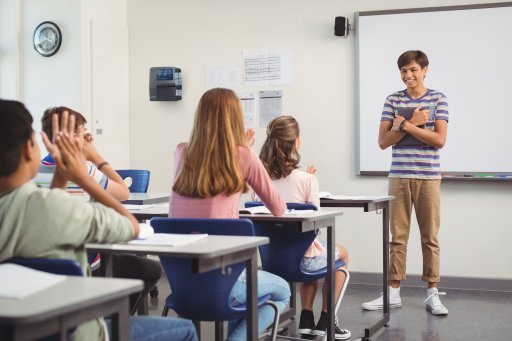A company in southwestern Ontario claims to have developed game-changing technology that can detect COVID-19 particles in the air.
Kontrol Energy Corp. specializes in indoor air quality and its monitoring equipment is typically used to scan for dangerous gases in industrial facilities. But when COVID-19 arrived, company CEO Paul Ghezzi wondered if their technology could be repurposed for the pandemic.
“In March, we asked the question: Could we measure for COVID like we do these very small particulates that we’re looking for in industrial facilities, including volatile organic compounds? We had no idea,” Ghezzi told Global News outside the company’s headquarters in Vaughan, Ont.
Read more:
CDC removes new coronavirus guidelines on airborne transmission, cites ‘error’
Working with two microbiology labs in London, Ont., including a research lab at Western University where COVID-19 samples are stored, the company developed a device called BioCloud.
The wall-mounted unit resembles a commercial hand dryer — but instead of pushing air outwards, BioCloud’s fan draws air into its chamber where it’s then analyzed for COVID-19 particles.
“We believe our technology will flag an alert for COVID and then you can properly test each individual (in the room),” Ghezzi said.
Placed in an indoor space of up to 1,000 square feet, such as a classroom or office, Ghezzi said the device cycles through all of the air inside the room multiple times per hour.
The company received $50,000 in federal funding from the National Research Council of Canada to support its research. Testing on the device was overseen by David Heinrichs, a professor of microbiology and immunology at Western University.
“There’s no doubt in my mind that this technology can quickly and effectively detect an array of airborne pathogens, including the virus that causes COVID-19,” Heinrichs said in a press release for Kontrol Energy Corp.
“Our results are absolutely conclusive.”

A mockup image of a BioCloud device in a classroom setting.
Kontrol Energy Corp.
The company plans to begin selling the BioCloud devices in November for approximately $12,000 each and is working to produce 20,000 units per month.
“We’re getting calls from all over the world,” Ghezzi said.
“Classrooms, offices, long-term care facilities, hospitals and mass transportation; anywhere where people congregate and they need to feel safe,” Ghezzi said.
“We feel very good about being part of the solution.”
The test results and details of exactly how the BioCloud device operates have not been made public, to protect the company’s proprietary technology. As a result, some experts are reacting to the company’s claims with skepticism.
“I was quite happy to see these new technologies coming up, but as a scientist then the questions start coming up,” said Dasantila Golemi-Kotra, an associate professor of molecular, cellular and chemical biology at York University in Toronto.
Golemi-Kotra notes COVID-19 would be difficult to detect in the air, in part because the particle is fragile and can resemble other viruses.
“What is the level of sensor sensitivity? How selective is the device against this particular virus, the novel coronavirus? How accurate is it? It is a technology that one needs to look at carefully,” she said.
Experts are also divided over the extent to which COVID-19 can travel through the air, though studies suggest it can linger for hours in a poorly ventilated room.
“If (students) are in the classroom for three to six hours at a time with poor ventilation, eventually the virus will build up and up and up,” said Julian Tang, an honorary associate professor of respiratory sciences at the University of Leicester.
“You may well pick up some virus using that (BioCloud) device in that environment.”
Read more:
Scientists find coronavirus in the air — but experts say this won’t yet change how we fight it
Similar technologies are being developed in several other countries. In Israel, scientists at Ben-Gurion University of the Negev are using graphene technology to build filtration systems that can purportedly protect against COVID-19 particles.
Researchers at Colorado State University are also developing a virus detector similar to the BioCloud. Their device captures particles in the air and wraps them in a small protective liquid, to determine whether they’re COVID-19.
“The Aerosol Devices system that we’re working with now, they can very gently collect virus particles. And that allows my group and I to take those samples and, in real time, actually tell you whether or not there is virus in there,” said Brian Geiss, associate professor in the department of microbiology, immunology and pathology.
Geiss and his team hope to have a prototype ready for market in six to eight months. They’re also working to train the systems to detect other airborne and respiratory viruses, including influenza.
“There’s absolutely huge potential for this type of technology to be used,” he said.

